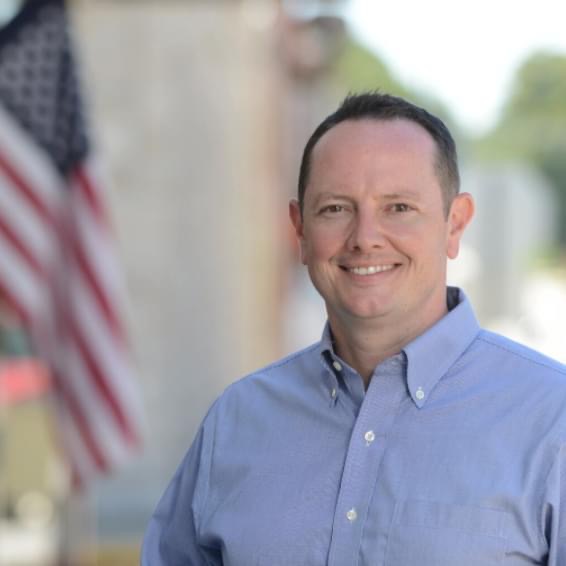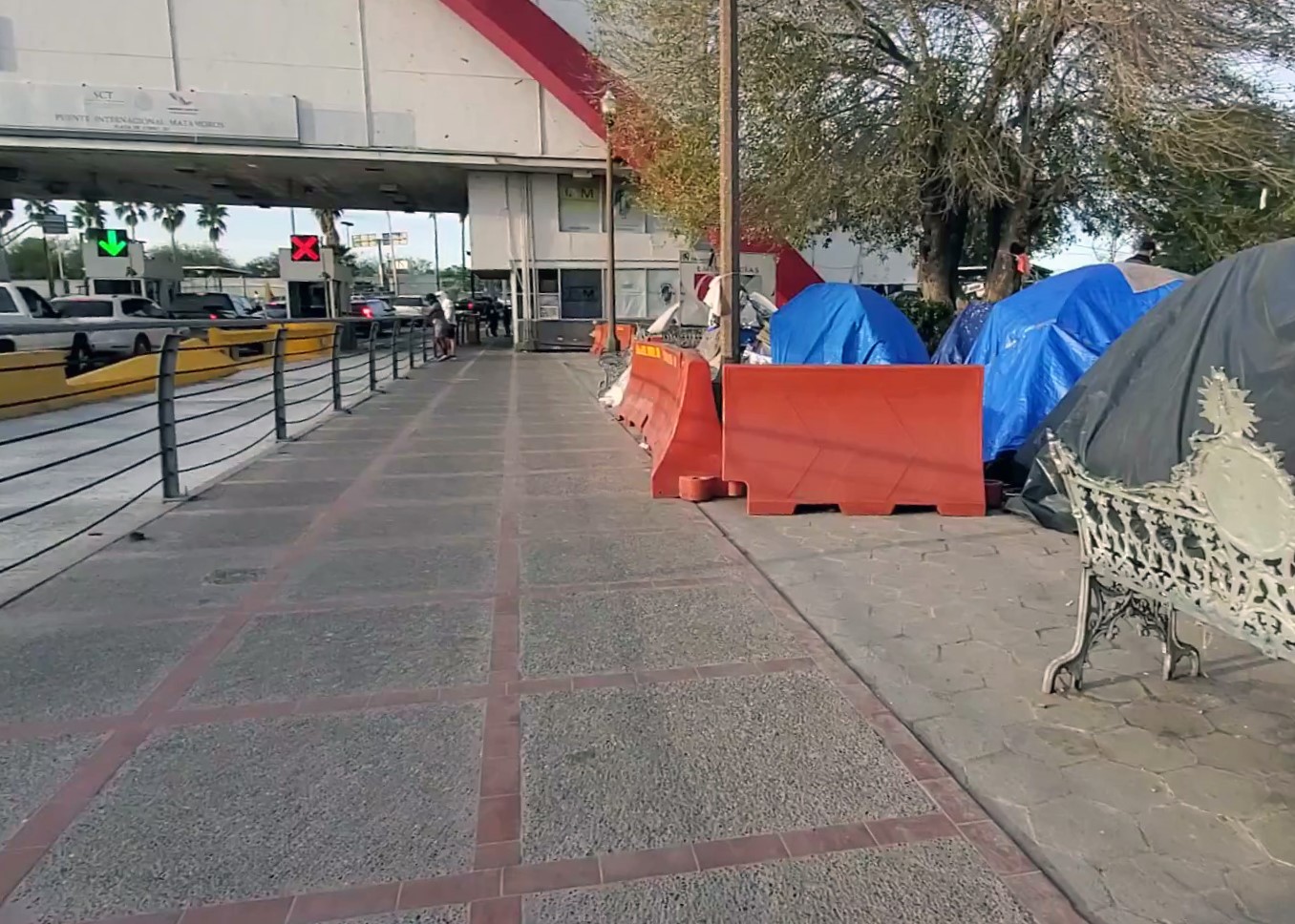voting guide |
For the first time in more than a decade, Missouri’s 7th Congressional District will send a new face to represent the area in Washington, D.C.
Nestled in Missouri’s southwest corner, the 7th Congressional District is a Republican stronghold, and has been held by the party for the past 62 years. Incumbent Rep. Billy Long has represented the district for 12 years, but gave up his seat to mount what proved to be an unsuccessful run for U.S. Senate.



Vying for the open seat are Republican state Sen. Eric Burlison, Democrat Kristen Radaker Sheafer, and Libertarian Kevin Craig. In August, Burlison came out on top of a crowded Republican primary field, and is the heavy favorite in the general election. Sheafer, the Joplin-based bakery owner, and Craig, the third-party mainstay on the ballot, both face a steep uphill battle in November.
Where and when to vote, and what you need to bring (click to expand story)
When and where: The general election will take place on Nov. 8. Polls open at 6 a.m. and close at 7 p.m. You can identify your polling location here. Information on absentee voting in Greene County can be found here.
What you need: This is the first election that Missouri’s new photo ID law will be in effect. The Secretary of State’s website provides information about what forms of ID will be acceptable.
Do you live in the 7th district? The state legislature changed Missouri district maps this year. The new 7th Congressional district consists of the entirety of Greene, Jasper, Newton, McDonald, Lawrence, Barry, Stone, Christian and Taney counties, plus a large southern chunk of Webster County. Voters can find what Congressional district they reside in and who will be on their ballot here.
We asked the candidates a handful of questions about how they plan on addressing issues the U.S. is facing. Some responses have been edited for brevity or clarity.
List of key issues
TIP: Click on an issue to jump to the section

Q. What policies should be pursued to maintain economic growth while bringing inflation rates down to the 2-3% annual range?
Burlison: Reining in government spending would be the most beneficial thing we could do to get our economy back on track. The Biden administration’s out-of-control spending like the (proposed) $1.2 trillion “Build Back Better” deal is irresponsible and damaging to the cost of living for middle and lower class, hard-working Americans. If we look back to the Tax Cuts and Jobs Act of 2017, we can see that the tax revenue went up $190 billion, unemployment was at a historic low and the lowest earners received the largest gains. With hardly a week in office, Joe Biden took a wrecking ball to the America First policies that so many of us benefited from. If Joe Biden really cared about the average American family, he would ease our tax burden and stop paying people to stay at home. His priorities have put us in financial distress and we need to get our country into a better place.
Sheafer: We have a very complex economy, so there is no silver bullet solution that will solve all of the problems, but there are many smaller steps we can take to start building a stronger and more resilient economy. … Supply Chain: One solution would be to create incentives for American companies to manufacture in the U.S. with materials sourced from North America. This will shorten supply chains, make them less brittle, and reduce the impact of global events on everyday consumers. … Corporate Profits: I would propose we implement a windfall tax that would allow corporations to be taxed at a slightly higher rate when making enormous record profits in times of crisis or uncertainty. … Break up monopolies, particularly in the agriculture and meatpacking industries.
Craig: The Constitution gives no authority to the federal government regarding economic growth. The economy is the domain of the private sector.… We could end inflation tomorrow by following the Constitution's requirements concerning money and abolishing the Federal Reserve, putting an end to the rising prices that are caused by the intentional inflation of the money supply by the Federal Reserve.

Q. What steps can Congress take to decrease the national debt, address wealth inequality and close tax loopholes?
Burlison: We cannot spend our way out of our debt issues and we cannot end poverty with government spending. Nothing has pulled more people out of the mire of poverty than free market capitalism. When people have the equal opportunity to create wealth and will know with certainty that the wealth they produce will not be stolen by their neighbor or their own government, then people will strive and produce more. The left would have you live in a world where nothing is affordable unless the government is paying for it. I would rather we live in a world where nearly everything is affordable to nearly everyone. To accomplish this, the government needs to stop redistributing wealth. It needs to lower and flatten the tax rate for all.
Sheafer: Auditing all government spending. … Increasing taxes and closing loopholes for the largest corporations. … Restructure how subsidies and government aid is distributed. When corporations face hardships, the government often steps in to subsidize or provide financial aid to keep the companies afloat. Under the current system, that aid is only attainable by those who already have the wealth and resources to leverage that help.
Craig: Cut the federal budget by more than $4 trillion (of a total budget of roughly $6 trillion) by abolishing all unconstitutional programs and then eliminate the income tax. … Wealth inequality is not a problem. I would rather be the poorest person in a rich capitalist nation than be equal to all the poor people in a socialist nation. I don't want to close tax loopholes. I want everyone and every business to have loopholes. Taxation is immoral. Taxation is extortion.

Q. What should be the U.S. policy on immigration, particularly as it relates to the southern border? What reasons do you have for either tighter or looser immigration policies?
Burlison: Our southern border has greatly weakened over the last two years with Biden in office. Our border patrol agents are overworked and criticized by the left for trying to limit lawlessness. I don’t know if the Vice President is trying to fool us or herself when she claims “the border is secure,” but it’s clear there is a massive problem when we see videos or news reports from Texas about illegal immigrants absolutely flooding into our country, or worse, turning up dead by the truckload like they did in San Antonio. From June 2021 to June 2022, two million illegal border crossings have been recorded and border patrol has seized 10,000 pounds of fentanyl. It is time for this administration to own up to its failures and follow the law on the books. I believe a rigid immigration system will deter illegal crossing and will benefit those seeking legal residency in our country.
Sheafer: We are well overdue for comprehensive immigration reform. I believe there are ample opportunities to accomplish this with bipartisan support. … Immigrants currently in the country: I would propose a system that allows those immigrants to come voluntarily forward without fear of deportation or detainment. They would then be required to submit to thorough background checks. They could then be put on a payment plan or pay upfront a penalty for overstaying the visa as well as for any taxes they owe, and then be put on a path to citizenship or a renewed visa. … Crossing the border legally: One of the major issues is the enormous backlog of individuals waiting to be processed through immigration courts. We can solve this problem by creating policies that offer an expedited entry process. … The crisis at the border: Focusing on clearing the backlog of well-intentioned people can alleviate so much of the stress put on our borders while making it easier to secure the border against those who profit from the chaos.
Craig: Restrictions on immigration are unconstitutional. Immigrants from Mexico are sometimes described as an ‘invasion.’ I guess that means we can wage ‘war’ on them.

Q. How should the U.S. interact with the rest of the world, especially as it relates to financial and trade issues brought on by COVID-19, the war in Ukraine, and tensions between China and Taiwan, etc.?
Burlison: The United States has always operated from a position of strength, and in order to maintain our strength, we must continue to put America First. That means supporting our military, working toward self-sustainability so we do not get caught off guard by global issues that affect energy supply or cause kinks in the supply chain. I understand that many countries look to us for assistance, and I support sending aid and resources when necessary to those like our closest ally Israel to defend themselves. I support causes that will secure democracy and freedom and fight communism and tyranny, but our absolute first priority is to take care of our own here at home.
Sheafer: I believe it is our responsibility to honor all of the promises we’ve made, not only because we want to be seen as credible partners on the world stage, but also because it is the right thing to do. … On the financial impact of COVID-19: In an ever-shifting global environment, conditions can change very quickly. In order to protect ourselves from vulnerabilities in our trade system, we should work to ensure scalable domestic production of all goods absolutely vital to the health and safety of Americans. … Our foreign conflicts: I do not believe that it is the U.S. government’s responsibility to fight other country’s wars for them. While I support the U.S. decision to send humanitarian and financial aid to Ukraine, we should not be risking the lives of American troops or providing support that could be potentially harmful to the American for a country that is not a current ally of the U.S. … We will be better off if we can have compassion and provide responsible aid to the people of the world without becoming intimately involved in their conflicts thinking we know better how they should run their governments than they do.
Craig: America's original foreign policy would be called ‘isolationist’ today. … NATO should be abolished. The Soviet Union no longer exists and the Cold War is over. The U.S. can end the war in Ukraine tomorrow by stopping all military aid and giving assurances that Ukraine will not be admitted to NATO. It was wrong for the U.S. to interfere in Ukrainian politics in 2014. The Putin regime is more friendly toward Christians and is no more evil than the Biden regime. The desire by Washington D.C. for global ‘uni-polar’ hegemony increases the danger of nuclear war and is the greatest threat to the human race in our day.

Q. What steps should the federal government take to make the U.S. more energy independent — and more sustainable?
Burlison: If the federal government and the Biden Administration would stop picking winners and losers in the energy industry, we could be completely self-reliant and maybe even be able to export excess energy. Killing jobs in one energy sector to focus on building up another is not the path toward energy independence.
Sheafer: We need to invest in renewable energy technology to become the primary green exporter for the future. Natural gasses and minerals like coal and oil are not going to be here forever, and we can see the damage they do to us and our planet. … Investing in renewable energy technology allows for the creation of thousands of high-paying jobs constructing the factories and manufacturing the technologies in the U.S.
Craig: The Constitution gives no authority to the federal government regarding energy. The Department of Energy should be abolished.

Q. What is the role of the federal government in addressing climate change? Why or why not should the U.S. be involved in global initiatives to curb carbon emissions?
Burlison: The federal government has no business regulating that individuals and private companies implement radical green initiatives. Large companies are already incentivized to enact sustainable practices, but small and medium-sized companies can’t be mandated to spend money and resources implementing these often expensive initiatives. These companies can’t sustain piled-on regulations of any kind.
Sheafer: The government’s role in addressing climate change should be reallocating the money currently spent on fuel subsidies to spur innovation and research in both the public and private sector. … The government should be involved in setting some standards for emissions while aggressively moving toward the goal of becoming energy independent and ending reliance on fossil fuels in the interest of creating sustainable and adaptable energy markets that future generations can rely on.
Craig: [The Constitution] gave no authority to the federal government to deal with climate. Climate change may bring changes that people will have to deal with, but on balance, I think “global warming” (or “greenhouse effect”) would be a good thing. Plants love CO2. A warmer planet is a greener planet, and that would be good for human beings, too.

Q. What can the federal government do to address firearm-related crimes and deaths, as it relates to mental health, law enforcement, background checks, concealed carry, and access to firearms?
Burlison: As the champion for our Second Amendment here in Missouri, I understand this better than most. Constitutionally, there are no grounds on which the federal government should dictate the ability of law-abiding citizens to defend themselves. I will continue to be our Second Amendment champion in D.C. and block ignorant socialist policies that would seek to ban our inalienable right to bear arms, which I believe would threaten all our other rights.
Sheafer: I would support raising the age to purchase an assault weapon to the same as a handgun, 21 years old. … I support the expansion of background checks to include juvenile records as well as a national background check standard. A person who knowingly isn’t eligible to get a firearm should not be able to cross state lines to a place with looser background checks to obtain a deadly weapon. … Passing and enforcing red-flag laws can help reduce gun deaths from suicide, domestic violence, and in circumstances where potentially violent people make threats of violence. … We need a significant increase in funding to support the increase in demand for mental health care that is not currently being met. Many people have had a rough time over the last few years, and we all process trauma differently. Access to therapists, medications, and support are one of the most important ways we can not only address violence, but also improve the quality of life for many.
Craig: The Constitution gives no authority to the federal government regarding guns, background checks, etc. The best way to address crime and death is to teach children that God says “Thou shalt not kill.” The federal government prohibits this, so it is no wonder that killing is on the increase. Since I am a Christian, I am a pacifist. I'm no fan of gun violence. That's why I'm against all “gun control” laws: they are an invitation for “public sector” gun-owners with badges to use their guns against “private sector” gun-owners without badges.
In the coming weeks, watch for added Daily Citizen coverage of the 7th District contest, in addition to the U.S. Senate race and local campaigns for the Missouri General Assembly. Read past 7th District coverage here.

